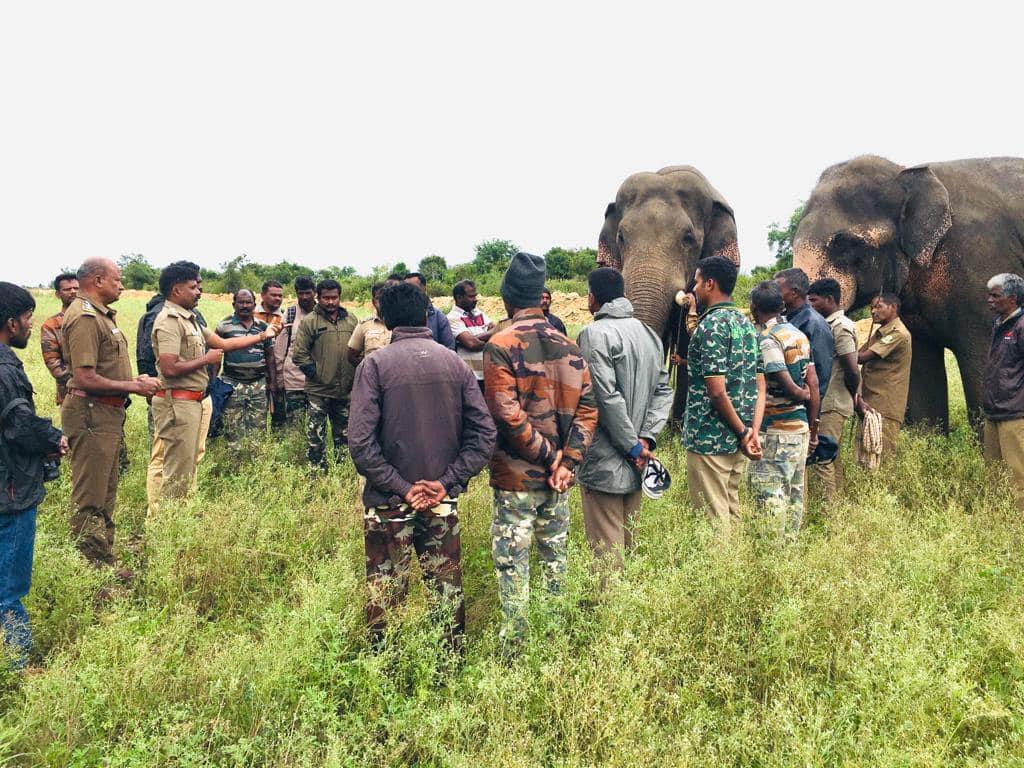One of the most difficult challenges a forest officer faces is the unfavourable interactions between wildlife and human activity, which can result in agricultural damage, property damage, and even the loss of human lives. Because of the degradation of natural habitats and the increase in human populations, effective management techniques to alleviate such conflicts and promote cohabitation between humans and wildlife are required.
In the Sathyamangalam Tiger Reserve, under the guidance of Field Director, Mr. S. Ramasubramaniyam, IFS, and Deputy Director, Hasanur division, Mr. Devendra Kumar Meena, IFS, Forest Range officer Mr. S. Sathish has come up with innovative ways to mitigate man-animal conflict in the region and provide immediate relief to the victims involved.
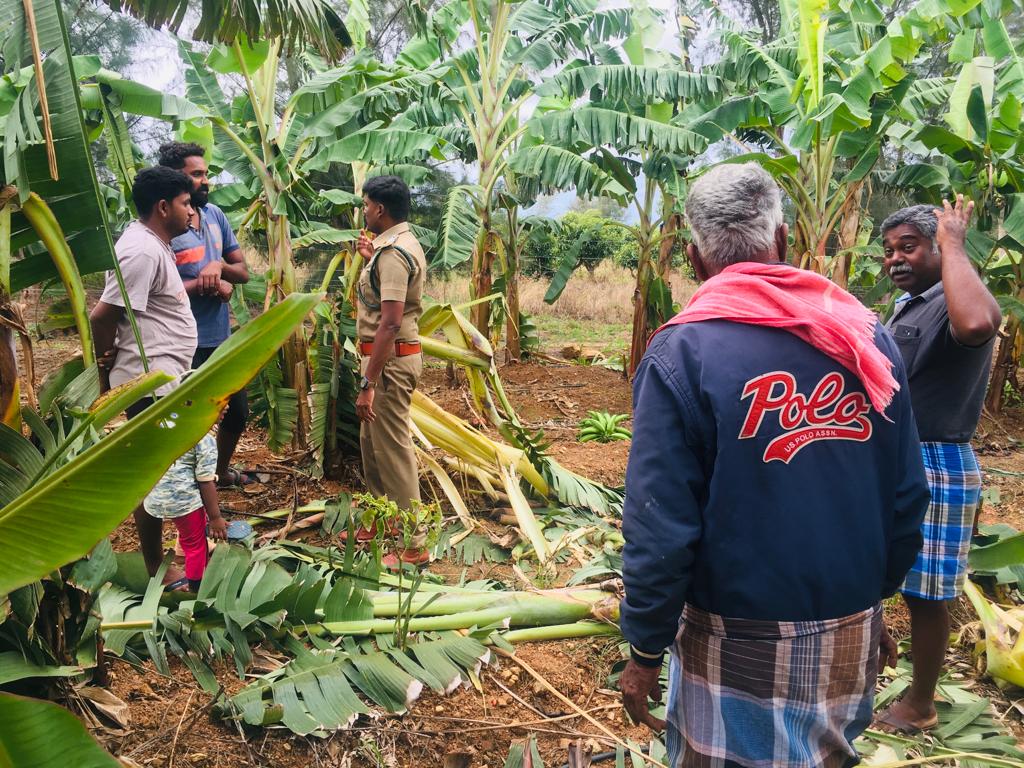
NECESSITY
The Sathyamangalam Tiger Reserve (STR) is bordered by a number of enclaved hamlet communities where the locals raise cash crops like bananas. Elephants from the surrounding area are drawn to these cash crops, causing extensive damage to crops.
The government compensates farmers whose crops are damaged by elephants in the tiger reserve with Rs. 25,000 per acre, depending on the extent of the damage. However, two people have died in the region in the last two years as a result of man-animal conflict. These farmers were trampled by elephants who were trying to drive them away.
This caused major concern, prompting the forest department to conclude that significant actions must be taken in the area to avoid disputes between the two sides and assist them in coexisting with each other.
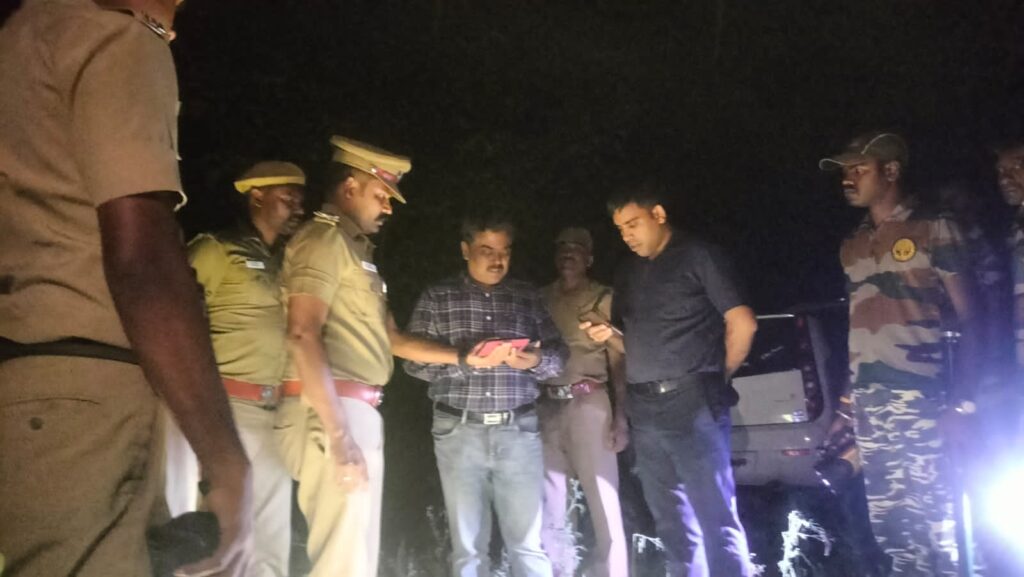
ELEPHANT TRENCHES
The first step taken by the forest department was to dig elephant-proof trenches along the nearly 12-kilometre stretch of the border between the Reserve and the village settlement. This contributed to a 60% reduction in the issue of elephants wandering into agricultural fields.
The officer and his crew identified a few hotspots that were the major channel of elephants’ regular migration into the settlement and installed double-layered protection in those areas, including elephant-proof trenches and hanging solar power fences to keep the animals at bay.

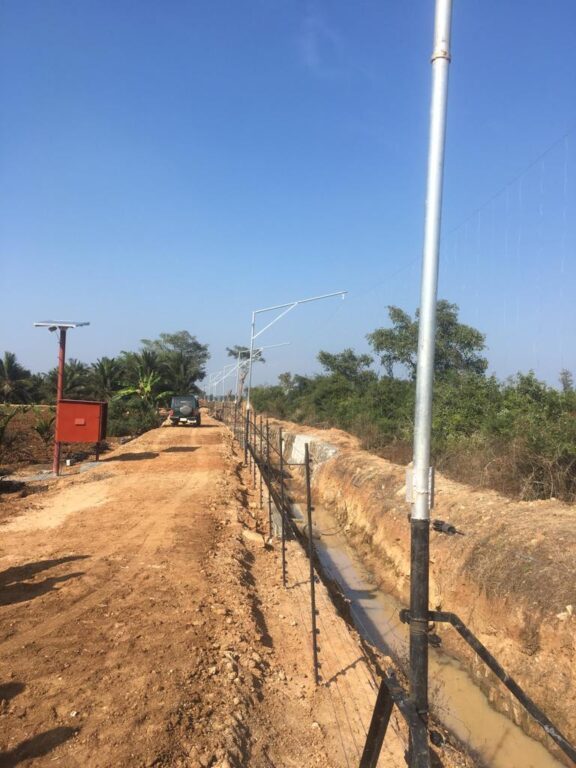
COMMUNITY PARTICIPATION
The officer and his team personally met with the farmers of the village settlement who requested them to settle down the issues caused by stray elephants. He explained to them the different methods and techniques adopted by the forest department to keep the animals away from human habitat and also raised awareness regarding elephant movement with them so that no other person gets hurt and loses life because of the jumbos.
“Much to our surprise and happiness, the farmers came together and contributed six lakhs out of the 16 lakhs expenditure on the solar fencing equipment. The remaining 10 lakhs were sanctioned to us by the government. This prompted a good example of community-departmental collaboration, thus mitigating the man-animal conflicts by 95%. The double-layered protection is giving very good results,” shared Mr. Sathish.
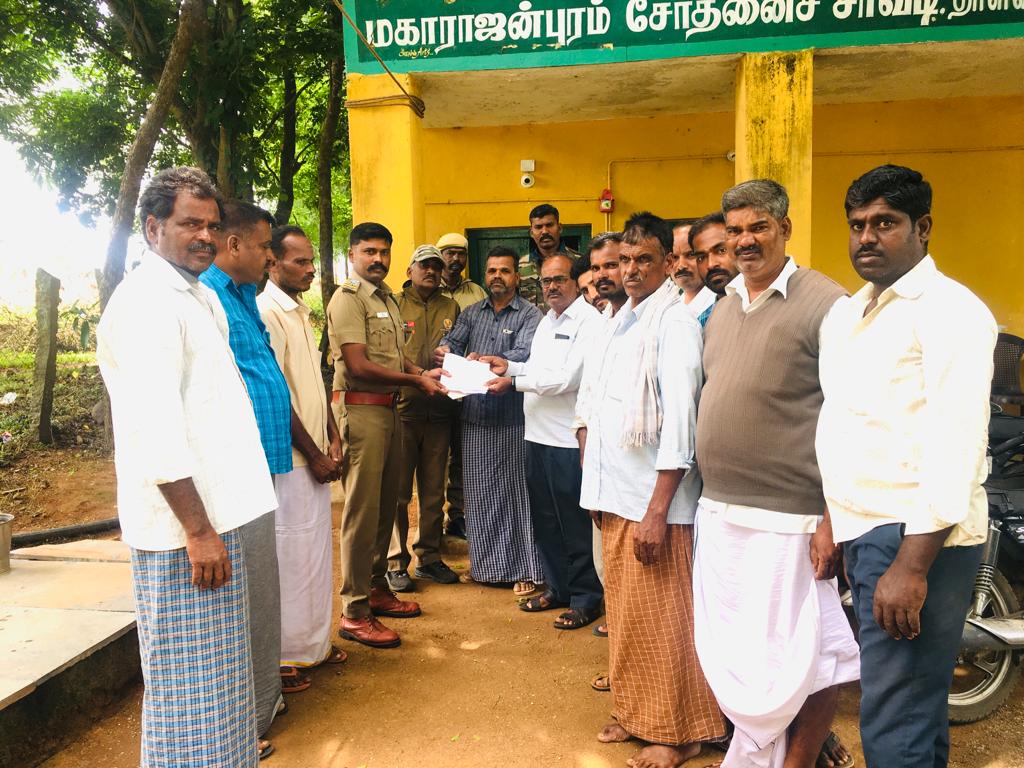

“After the successful implementation of four-kilometre solar fencing, people are now coming forward to instal an additional 2.5-kilometre solar fence, with collaboration from the local farmers, under which Rs. 3 lahks is contributed by the farmers and Rs. 6 lakhs is contributed by the department,” shared the forest officials from the Satyamangalam Tiger Reserve.
WORKING INSIDE THE RESERVE
Elephants from the Tiger Reserve frequently stray outside of their home range in search of food and water. To prevent the animals from being forced to travel farther in their search, the officer is also working on this front to ensure that they have plenty of water and food nearby.
“We are focusing on creating several check dams, desilting the percolation ponds, and constructing new manmade ponds, among other things,” shared the officer.

In order to increase the amount of vegetation in forested regions, the department is also clearing the reserve of about 100 acres of invasive species like lantanacamara and sowing native seeds and seed balls in the area. The water level in the Tiger Reserve has also risen, and now there is enough water there to quench the thirst of the animals.
“We plan to increase some fruit-bearing indigenous trees, as well, along with bamboo trees for the elephants.”
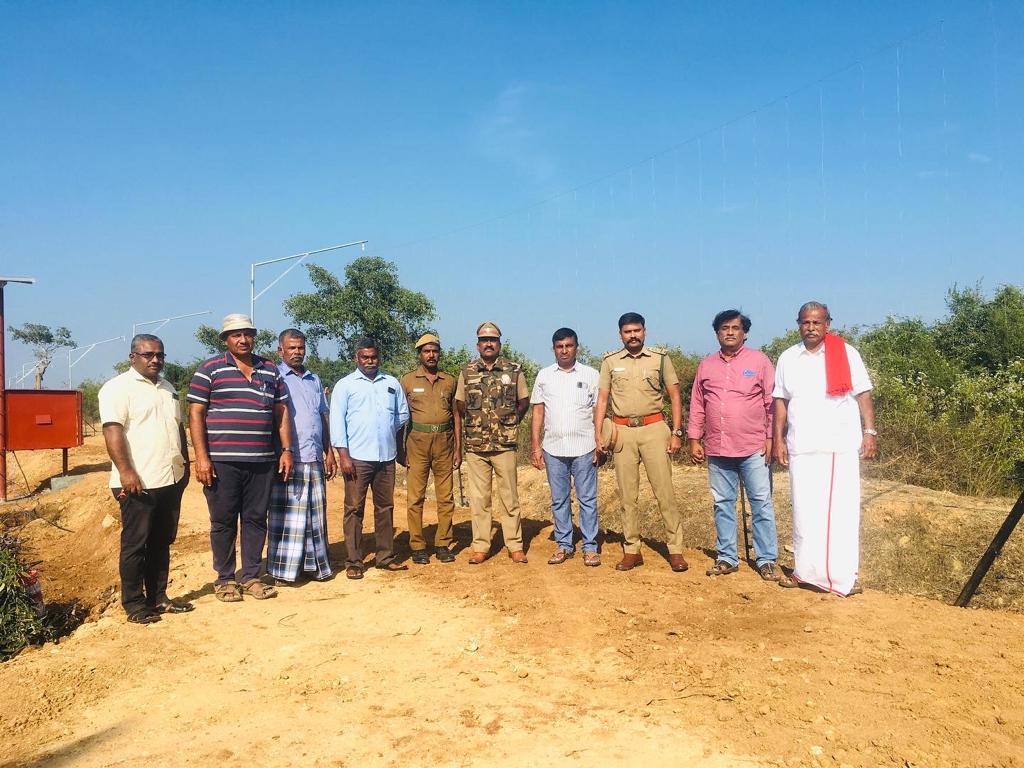
THREE LAYERED PROTECTIONS
The officer intends to erect bio fencing in the area, consisting of cactus plants that will be planted all along the boundary, in addition to trenches and solar fencing. Elephant incursion will be considerably reduced as a result of this. The department is already looking for sturdy, high-quality cactus plants, to be planted in the area.
Despite their efforts, the jumbos, sometimes, venture out during the night and damage the crops. Therefore, the Department has now decided to deploy kumkis (trained elephants) to drive the problematic elephants back into the forest region and away from the farming lands.

“The elephants are no longer viewed as enemies by the population. They are coexisting with them peacefully while protecting their crops with our support. We are attempting to educate them that growing cash crops close to the forest area may draw animals, thus they should avoid doing so,” Mr. Sathish told Indian Masterminds.
The officer has also created a dedicated chat group on WhatsApp called ‘Elephant Cell’ in which he has added around 500 farmers from in and around his range. Through this WhatsApp group, he is able to receive timely information about the intrusion of an elephant in farming fields prompting him to deploy his Anti Depredation squad, as quickly as possible. The members of the squad reach the field in their vehicles, in no time, and drive the elephants safely back to the forest areas. The chat group has proved to be quite beneficial in terms of elephant management and bringing relief to farmers.

